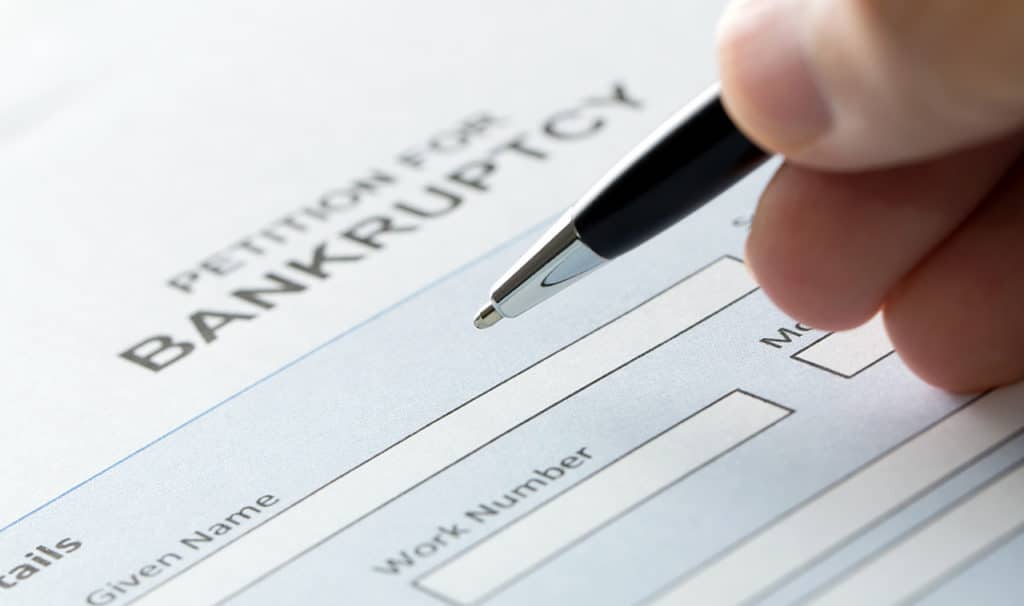
[1]
These days, nearly everyone is experiencing tough financial times. With the ongoing fight against coronavirus and no notion of when the pandemic will end, the economy is experiencing an upheaval that rivals the statistics produced by the Great Depression. Individual states are in discord as to how to best handle the reopening of states to bring about some sort of forward motion that will result in jobs being restored and livelihoods regained. Even with many plans of attack in motion across the country, most American employees are still faced with daunting obstacles in the days to come. While daily concerns vary from one person to the next, the universal question on most minds is simple. When every avenue of financial breakthrough has been attempted, what should I do when I am still faced with a mountain of debt and have no means to repay it? The thought of filing bankruptcy is embarrassing or overwhelming to many people, but sometimes it is the best option.
This leads to the ultimate question; how do I file for bankruptcy?
The first, and most important step, is finding the right legal counsel to walk you through the process. The ins and outs of bankruptcy can be confusing, and without a lawyer to guide the way, vital checkpoints of your bankruptcy case could be missed, resulting in the dismissal of your case. While it may seem counterproductive to seek the advice of a lawyer that costs money while legally proclaiming money is what you lack, there are some lawyers that work pro bono (at little to no charge). The state bar association will have a reference list of attorneys capable of handling your case if you are unsure of just how to go about finding representation. However, the least expensive lawyer may not be your best option., so make sure that you are comfortable with the lawyer who will be filing your case.[2]
Next, your legal representation will counsel you on which form of bankruptcy is the right kind for your needs. These different forms are called Chapters, named for their placement within the Federal Bankruptcy Code. One such option is Chapter 7. This Chapter is typically a 90-day process from the time that you file your case to the time you receive your discharge. A trustee is appointed to your case to investigate and sell assets to pay your debts. Items such as clothes, household goods, tools, and vehicles are usually exempt from the liquidation process. The goal of this process is to obtain a discharge or cancel your debts. This is not the most appropriate option for everyone because an individual must satisfy a means test in order to qualify. If it is determined that you can pay a significant portion of your debt, then you may need to consider a Chapter 13 bankruptcy instead. In this Chapter, “wage earners,” as they are called, are given a plan devised by the court by which to pay back debts for a period between three to five years. At the end of this time, the remaining debts are discharged.[3]
After deciding which form of bankruptcy fits your situation best, all individuals wishing to file are required to attend a credit counseling session within the 180 days preceding the filing. The credit counseling session typically involves filling out a budget to review with your counselor who will discuss appropriate alternatives to bankruptcy. If an individual is married, both spouses are required to attend these sessions, though most can be completed on-line.[4]
It is at this point that you are finally ready to file for bankruptcy. You will now have to fill out a mountain of forms requesting information about your assets and debts, thus another reason to have legal counsel at hand to instruct you through the process. Your attorney can help you navigate through the volumes of paperwork and other information that you will need to disclose in your bankruptcy petition to ensure you comply with the bankruptcy laws.
Bankruptcy can be the best opportunity to breathe life back into your finances. Consider all of your options before filing but realize that in these unprecedented times, bankruptcy may allow you to recover your financial health quicker than any other option.
If you are struggling to pay your debts and concerned about the future welfare for you and your family, it is important that you seek the advice of a bankruptcy lawyer to ensure that your assets are protected and the debts you seek to eliminate are dischargeable. Our attorneys have been assisting consumers and business owners with bankruptcy matters for over 25 years. If you are considering filing for bankruptcy, please consider contacting the Nomberg Law Firm. Our office number is 205-930-6900.
Steven D. Altmann has been a lawyer for more than 25 years. Steve has earned an AV rating from Martindale-Hubbell’s peer-review rating and was recently named a Super Lawyer and Top Attorney by Birmingham Magazine in the area of Bankruptcy Law.
[1] https://www.investopedia.com/articles/personal-finance/100714/when-declare-bankruptcy.asp
[2] https://www.greenpath.com/how-bankruptcy-works/
[3] https://www.moneycrashers.com/declare-file-bankruptcy-process/
[4] https://www.cfefa.org/
from The Nomberg Law Firm – Birmingham Workers’ Compensation & Personal Injury Lawyers https://www.nomberglaw.com/blog/how-to-file-for-bankruptcy/

